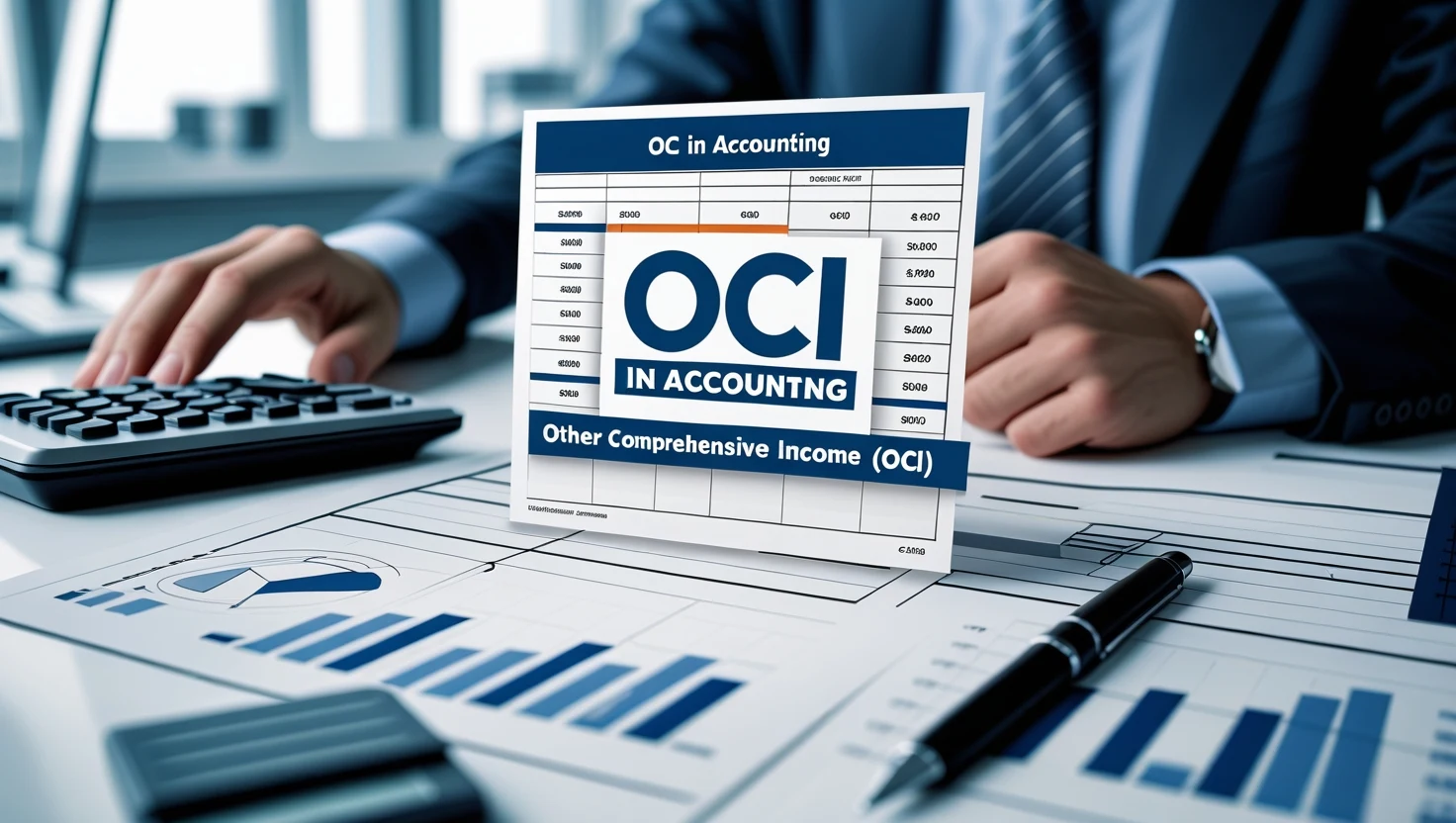
Running a small business means keeping track of money coming in and going out. But did you know there’s more to financial statements than just profit and loss? One important concept is Other Comprehensive Income (OCI). Understanding OCI can help business owners make smarter financial decisions, stay transparent, and follow important accounting rules.
This guide will explain OCI in simple terms. This will show why it matters.
What Is Other Comprehensive Income (OCI)? #
When you look at a company’s financial statements, you often check the income statement. This statement shows the profits and losses from regular business activities. But some gains and losses don’t appear there—these enter Other Comprehensive Income (OCI).
OCI includes things like:
- Profits or losses from investments, which haven’t been sold yet
- Currency changes when dealing with international businesses
- Adjustments in pension plans
- Financial tools like cash flow hedges
These do not impact the company’s net income immediately. However, they are important for the business’s overall financial health. Instead of appearing on the income statement, they appear in the equity section of the balance sheet.
Why Should Small Businesses Care About OCI? #
Many small businesses ignore OCI because it seems more relevant for large-scale corporations. However, keeping track of OCI can help businesses:
- Show accurate financial health: Separates business profits from other financial gains, avoiding confusion.
- Follow accounting rules: India’s Indian Accounting Standards (Ind AS) follow international guidelines (IFRS), making compliance important.
- Grow in global markets: If your business deals internationally, understanding OCI helps manage currency fluctuations.
By correctly recording OCI, small businesses can build trust with investors, lenders, and buyers.
Breaking Down Comprehensive Income #
- Net Income: This is the company’s profit from normal business activities like selling products or services.
- Other Comprehensive Income (OCI): These are financial events that affect value but aren’t immediately counted in profit.
What does OCI include? #
OCI includes financial changes that don’t affect daily business earnings but still impact the company’s finances. Common items in OCI are:
- Unrealized gains/losses on securities: Profits or losses on investments that haven’t been sold yet.
- Foreign currency translation adjustments: When international transactions cause financial value changes.
- Pension plan gains/losses: Adjustments in future pension obligations.
- Cash flow hedge adjustments: When businesses use financial instruments to protect themselves from risks like interest rate changes.
These adjustments give a comprehensive overview of a company’s finances beyond just income.
How OCI Affects Equity #
Since OCI doesn’t enter the income statement, it directly affects a company’s equity (ownership value). Over time, OCI can increase or decrease total equity, making financial reports more complete and transparent.
For example, if a company’s foreign exchange transactions lead to major value changes, recording them in OCI ensures shareholders see the actual financial impact.
Benefits of Understanding OCI for Small Businesses #
- Clearer Financial Insights: Helps owners, investors, and lenders see the complete financial health of a business.
- Better Decision-Making: Gives a broader view of finances, helping businesses plan.
- Investor Trust: Keeping OCI separate from regular income avoids misleading financial reports.
- Risk Management: Identifies financial trends early, so businesses can adjust strategies.
- Compliance with Rules: Proper OCI management ensures businesses follow accounting standards and avoid legal risks.
Steps to Manage OCI in Your Business #
- Identify OCI Items: Find transactions that qualify as OCI (e.g., investments, currency adjustments).
- Record OCI Properly: Keep clear records in financial statements.
- Update Balance Sheets: OCI belongs in the equity section of a balance sheet.
- Review & Reconcile Regularly: Checking financial records frequently helps prevent errors.
- Report OCI Clearly: Ensure transparency in financial statements, so stakeholders understand the business’s real financial position.
Common Challenges with OCI #
- Complex Calculations: Some OCI items require advanced financial knowledge.
- Changing Regulations: Accounting rules update frequently, making compliance tricky.
- Limited Resources: Many small businesses lack dedicated financial teams to manage OCI.
- Data Accuracy: Mistakes in financial data can cause reporting errors.
Real-Life examples #
An Export Business Managing Currency Fluctuations
A small textile company in India exports fabrics to Europe. Because of currency fluctuations, the rupee’s value changes against the euro. By recording foreign currency translation adjustments in OCI, the business tracks these changes apart from daily profits. This helps the business plan pricing and cash flow more effectively.
A Tech Startup with Investments
A tech startup invests surplus cash into stocks and bonds. The market value of these investments changes. Since they haven’t sold, the unrealized gains or losses go into OCI. This ensures financial reports remain accurate without misleading investors about operational profitability.
FAQ’s: #
1. How is OCI different from net income?
OCI includes financial gains and losses that do not affect daily operations. In contrast, net income shows a business’s regular earnings and expenses.
2. Do small businesses need to report OCI?
If they deal with investments, foreign transactions, or pensions, they should track OCI for accurate reporting and compliance.
3. Where does OCI appear in financial statements?
The equity section of the balance sheet records OCI, not the income statement.
4. Can OCI impact business decisions?
Yes, tracking OCI helps manage risks, plan finances, and maintain transparency.
5. How can small businesses manage OCI?
Using accounting tools simplifies tracking and compliance.
Conclusion #
OCI provides a clearer financial picture beyond profits and losses. Tracking it ensures accuracy, compliance, and better financial decisions.
Use Vyapar App to handle billing, stock & payments all in one place.
Make bills, track stock, and handle payments in one place.
